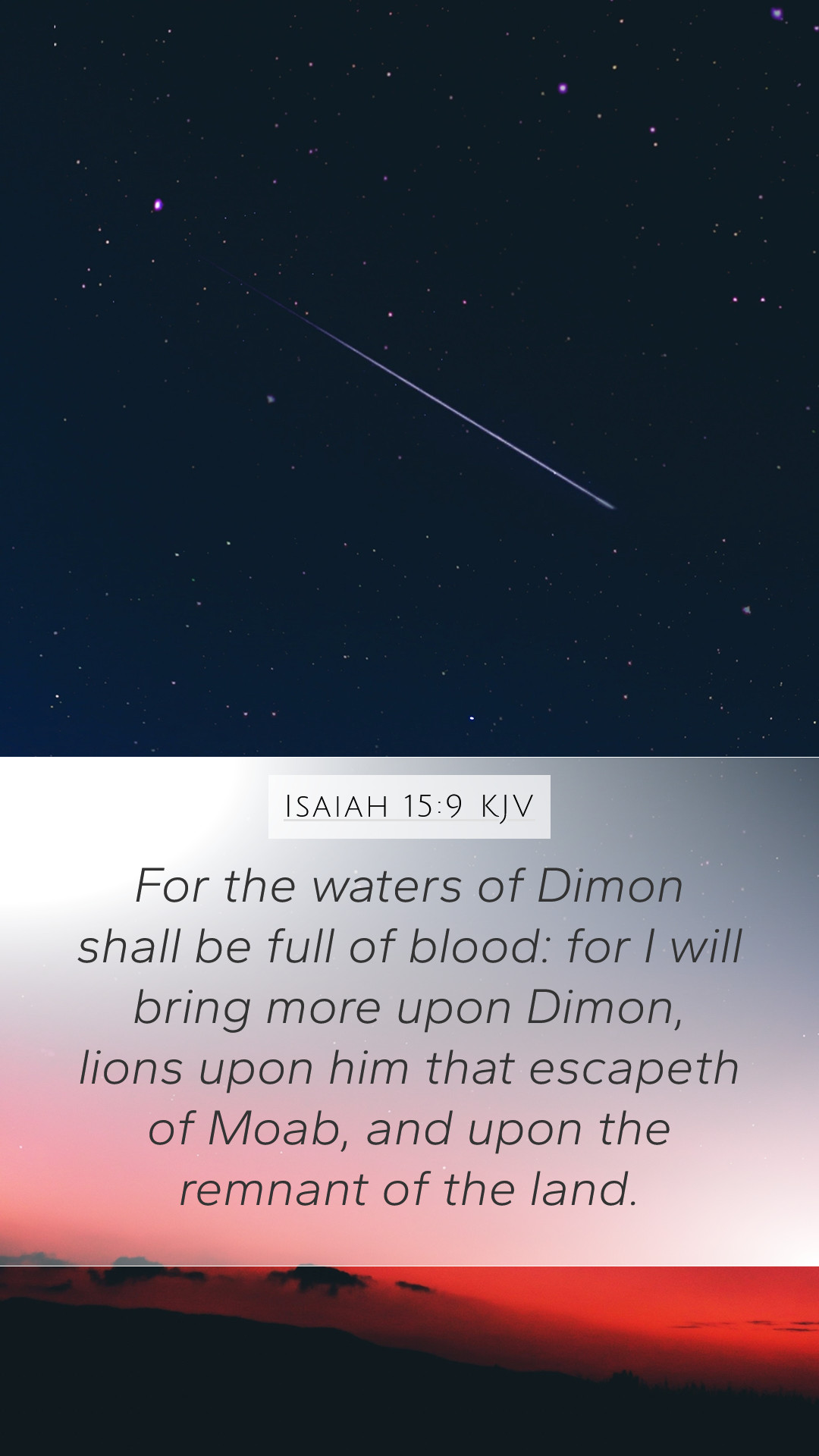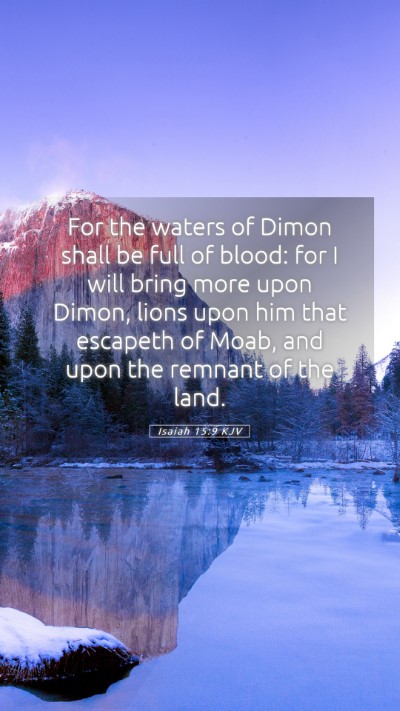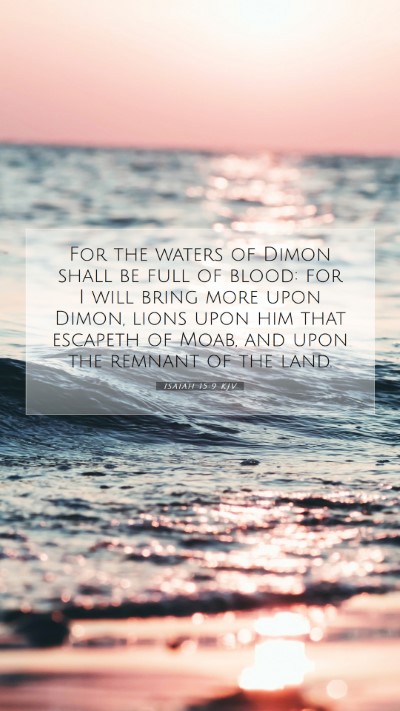Understanding Isaiah 15:9
Verse Reference: Isaiah 15:9
Contextual Background: The prophet Isaiah delivers messages of both judgment and hope throughout his writings. Chapter 15 specifically focuses on the burden of Moab, reflecting a period of calamity that befalls this nation due to their rebellion against God.
Bible Verse Interpretations
Isaiah 15:9 states:
“For the waters of Dimon shall be full of blood: for I will bring more upon Dimon, lions upon him that escape of Moab, and upon the remnant of the land.” (KJV)
Summary of Meanings
- Judgment and Consequence: The verse reflects the severe judgment God pronounces on Moab, symbolized through the imagery of blood and beasts. The waters of Dimon, likely representing either literal waters or the people, will be filled with blood as a sign of the devastating defeat.
- Symbolism of Blood: Blood in biblical terms often denotes not only life but death brought by violence or divine wrath. The cleansing of sin requires a payment that is highlighted through the bloodshed depicted here.
- The Role of Lions: The mention of lions suggests ferocity and destruction. This can be interpreted as judgment executed by God through foreign invaders or the consequences of the Moabites' sins against Him.
- The Concept of a Remnant: Despite the calamity, the reference to the remnant of the land signifies hope and preservation. God allows a remnant to survive, which is a common theme in the prophecies of Isaiah indicating that not all will be lost.
- Historical Context: Isaiah's prophetic utterances draw heavily from the historical and social fabric of his time. Moab, being a neighboring hostile nation to Israel, often engaged in conflict and idolatry, inciting God's wrath.
Bible Study Insights
Engaging in a deeper exploration of Isaiah 15:9 provides valuable Bible study insights:
- God's Sovereignty: The verse underscores the sovereignty of God in controlling the fate of nations. It invites believers to trust in God's ultimate justice.
- Understanding Scripture: To interpret this verse accurately, it’s crucial to understand the cultural and historical background of Moab—its idolatrous practices and its enmity with Israel.
- Application of Scriptures: Modern-day readers can apply these biblical principles of accountability and divine judgment in their lives by reflecting on their own actions and their consequences before God.
Bible Verse Commentary
From renowned public domain commentaries:
- Matthew Henry: He emphasizes the severe nature of God's judgment, showing how literal bloodshed could symbolize spiritual death as a result of sin. Moab's pride has led to its downfall.
- Albert Barnes: Barnes notes the historical reality of the situation, detailing how the promised destruction of Moab aligns with God's broader plan for nations. The intensity of the imagery serves as a stark warning to others regarding divine justice.
- Adam Clarke: Clarke highlights the phrase 'the waters of Dimon' pointing out that it suggests a place of sorrow and ruin, indicating that the land of Moab would be overwhelmed by defeat and lamentation.
Cross References
This verse relates to several others that enhance its meaning:
- Jeremiah 48:2: Similar themes of judgment upon Moab are reiterated.
- Ezekiel 25:8-11: This passage discusses the punishment of Moab for its hostility towards Israel.
- Isaiah 16:6-7: Reflects the prideful nature of Moab and the consequences that follow its arrogance.
Conclusion
In summary, Isaiah 15:9 serves as a poignant reminder of the consequences of turning away from God. Through the lens of judgment, it also holds the promise of a remnant, which speaks to God's enduring mercy even in the face of sin. Those engaging in Bible study groups or exploring through online Bible study sessions can derive profound lessons from this verse as they seek to understand the themes of divine justice, mercy, and the importance of heedfulness to God's Word.


